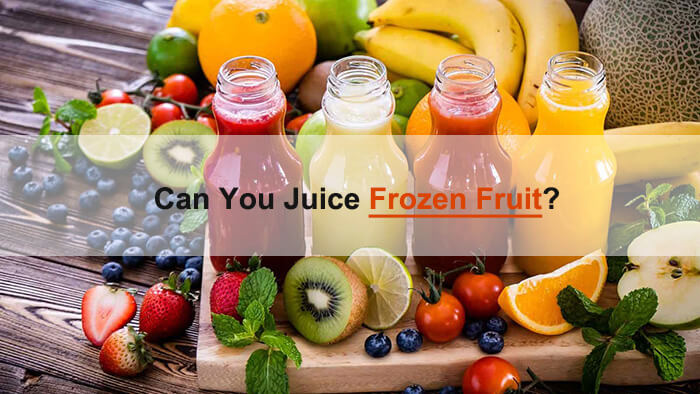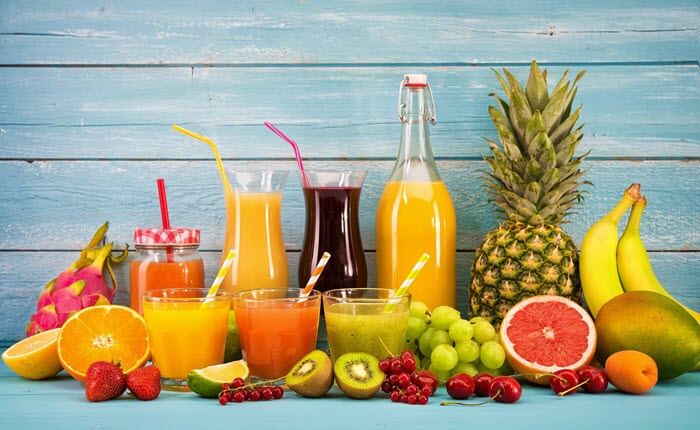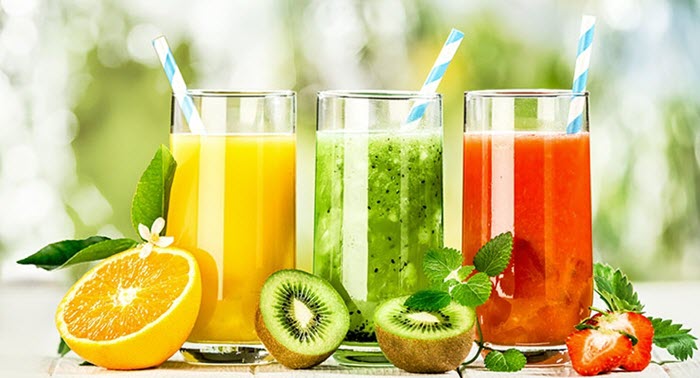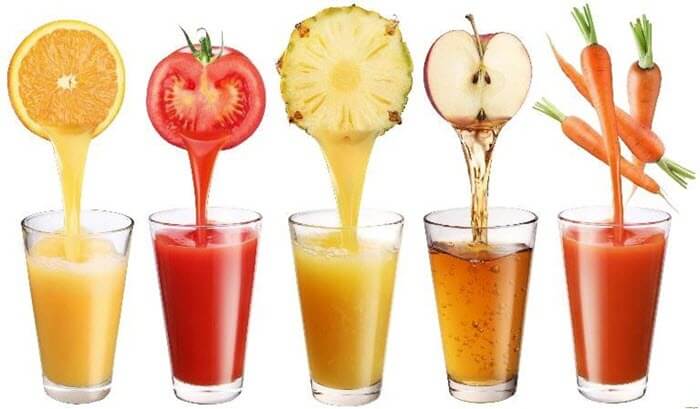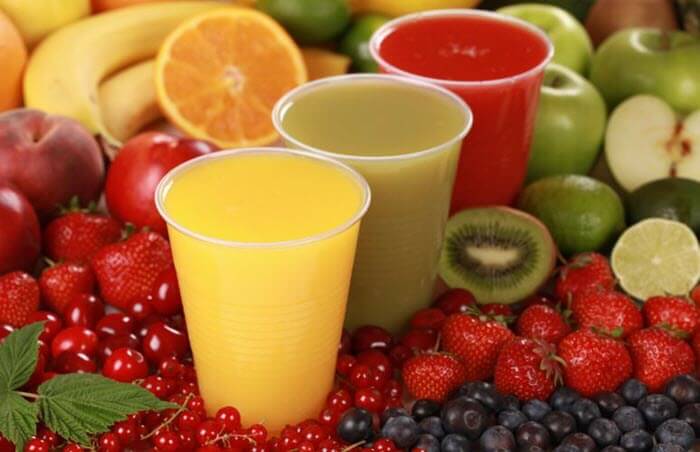Sure, you can purchase your juice from the store. But these days, it’s so difficult to find a genuinely healthy juice that doesn’t contain harsh chemicals, preservatives, and tons of sugar.
That’s why juicing [1] is such a great alternative. It’s an excellent way to get your daily serving of fruits and vegetables without eating them whole.
But you may be wondering: can you juice frozen vegetables? Can you juice frozen fruit? Today, we’re going to focus on the latter question and answer whether or not you can put frozen fruit in the juicer.
Table Of Contents
Can You Juice Frozen Fruit or Vegetables?
The short answer to this question is yes—you can put frozen fruits (and vegetables!) into your juicer. The best way to use frozen fruit in your juicer is to let the fruit thaw a bit before doing so. Otherwise, the rock-hard pieces can damage your machine.
As long as you take this step, there’s no reason why you can’t freeze your fruit and use it later on to make delicious fruit drinks.
Advantages & Disadvantages of Juicing Frozen Fruit
Using frozen fruit sounds like a great way to make yourself a refreshing, cold drink. And while that’s true, there are also some disadvantages to using this strategy.
We can discuss both the pros and cons of using frozen fruit to learn more.
Advantages
Keep Fruit Fresh for Longer
One of the top advantages of using frozen fruit in your juicer is that you can keep your fruit fresh for much longer. Fruit kept on the counter or even in the fridge can have a pretty short life, anywhere from just a few days to a few weeks, depending on the fruit [2].
But you can store fruit in the freezer for up to a year!
This advantage is particularly important given that not every fruit is in season all year round. So, if you want to juice some strawberries in the middle of winter, you can pull from the frozen stash you created in the summer.
Frozen Fruit Gives You a Cold Drink
If you prefer an ice-cold beverage as opposed to a room-temperature one, then frozen fruit will be your best friend. Since the fruit is already ice-cold, your drink will come out that way, too.
There’s no need to add ice cubes that will water down your drink—it’s already super chilled!
Plenty of Options—All the Time
One person can only eat so many fruits at once. When we purchase fresh fruit, it’s hard to maintain a wide selection because we can’t eat it all before it goes bad.
But when you juice with frozen fruit, you can store a wide selection of fruits in your freezer and choose what you want based on your current cravings.
You’re not forced to use a particular fruit simply because it’s about to go bad.
Disadvantages
Frozen Fruit Tastes Different
Fresh fruit is always the number one option when it comes to juicing. Any fruit that gets frozen will lose some of its structure and integrity.
When you juice it, the flavor will likely be a bit blander than it would have been if it was fresh.
Less Nutritious
Freezing fruit may be great for long-term storage, but doing so can actually release about two-thirds of the nutrients that exist in any given fruit. So, to be frank, fresh fruit is healthier and more beneficial to your system.
Of course, it’s never a bad thing to consume fruit, so you’ll still get some of the benefits—just not as much as you would with fresh fruit.
Different Consistency
Juicing fresh fruit versus juicing frozen fruit is the same difference you get with a regular drink versus a frozen drink. The consistency is very different.
When you juice fresh fruit, you get a true liquid. Juicing frozen fruit is going to give you a thicker consistency that will likely end up more like a smoothie or a frozen drink.
If you’re okay with that, then great! But it’s something to keep in mind in case you don’t prefer thick drinks.
How to Juice Frozen Fruit
Juicing frozen fruit is different from the process of juicing fresh fruit, so it’s important to review and understand the additional steps.
Doing so will not only give you a smooth, refreshing drink, but it can help protect your juicer and help keep some nutrients intact.
Step 1. Thaw Your Fruit
The first thing you need to do is thaw the frozen fruit you’ve chosen. You can plan ahead by transferring the frozen fruit to the refrigerator the night before.
You can also thaw frozen fruit quickly by running it under cool water in a clean sink for 20 minutes. Using water to thaw will help the fruit maintain its moisture content.
Step 2. Place Frozen Fruit in Juicer
After your frozen fruit has thawed for at least 20 minutes under running water, you can place it in your juicer and proceed with the juicing process. It’s important that your fruit has thawed thoroughly.
Otherwise, you could damage your machine.
Step 3. Strain the Juice
As mentioned above, juicing frozen fruit is different from juicing fresh fruit. Because the texture may be different, it’s a good idea to strain the juice before you drink it to remove fruit fibers and unwanted chunks.
Strain the juice into a glass and add your favorite, thick straw. Enjoy!
Bonus: Make Frozen Fruit Juicing Better
Amazing Frozen Fruits for Juicing
The following are some of the most popular frozen fruits for juicing:
- cherry
- mango
- strawberries
- cantaloupe
- blueberries
- pineapple
- honeydew melon
Tips to Juice Frozen Fruit
After knowing how to juice frozen fruit, here are some additional tips for you to make your juice better:
- Choose the right container
- Fill to the brim to decrease external exposure
- Add some citrus to keep the frozen fruit juice fresh
- Defrost before use to remain machine-friendly
Final Thoughts
With a high-quality juicer, suitable fruit blends, and a couple of extra steps, you can use frozen fruit to enjoy delicious fruit juices all year round—no matter what fruit is in season.
Keep in mind that your frozen fruit juice may not be identical to juice from fresh fruit, but that doesn’t mean you can’t still enjoy it.
Be sure to never peel your fruit, check for freezer burn before juicing, and store your fruit in freezer-safe containers for best results.

